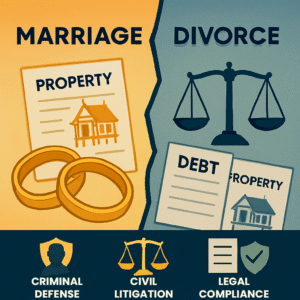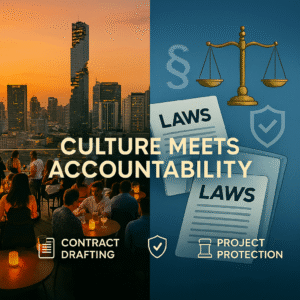Enforcement of arbitral awards in Thailand
- Arbitration in Thailand is governed by the Arbitration Act, B.E. 2545 (2002), with proceedings managed by institutions like the Thai Arbitration Institute and the Thailand Arbitration Centre.
- Foreign arbitral awards can be enforced in Thailand, given that Thailand is a signatory to the New York Convention.
- Domestic and foreign arbitral awards can be refused enforcement by Thai courts under specific circumstances, like incapacity of a party or violation of public order.
What is arbitration?
Arbitration is a form of alternative dispute resolution where parties involved in a dispute agree to settle the dispute by conducting an arbitral tribunal.
It should be appreciated that most, if not all, contracts will have some form of arbitral element that details arbitral proceedings in case of a dispute arising between the parties.
Arbitral proceedings in Thailand
Arbitral proceedings in Thailand are governed by Thailand’s Arbitration Act, B.E. 2545 (2002), as amended by the Arbitration Act. Thailand’s Arbitration Act was drafted in response to the UNCITRAL Model Law on International Commercial Arbitration.
Thailand has three domestic institutions responsible for arbitral proceedings:
- The Thai Arbitration Institute
- The Office of the Arbitration Tribunal Board of Trade of Thailand
- The Thailand Arbitration Centre
From our experience, the Thailand Arbitration Centre is the most preferred option when it comes to arbitration in Thailand.
Arbitral awards in Thailand
When the arbitration process has concluded, an arbitral award may be granted. The arbitral award must contain in clear wording the reasons as to why the award has been granted.
As Thailand is a contracting state to the New York Convention on the Recognition and Enforcement of Foreign Arbitral Awards (1951), foreign businesses can be rest assured that Thai companies are duty bound under the law to provide remedial awards after arbitration proceedings have been completed. Therefore, in principle, foreign arbitral awards can be enforced in Thailand.
Under the auspices of Section 43 of the Arbitration Act, Thai courts can refuse to enforce domestic and foreign arbitral awards in the following six circumstances:
- A party to the arbitration agreement was under some incapacity under the law applicable to that party;
- The arbitration agreement is not binding under the law of the country agreed to by the parties, or failing any indication thereon, under Thai law;
- The party making the application was not given proper advance notice of the appointment of the arbitral tribunal or of the arbitral proceedings or was otherwise unable to defend the case in the arbitral proceedings;
- The award deals with a dispute not falling within the scope of the arbitration agreement or contains a decision on matter beyond the scope of the arbitration agreement. However, if the award on the matter which is beyond the scope thereof can be separated from the part that is within the scope of arbitration agreement, the court may set aside only the part that is beyond the scope of the relevant arbitration agreement or clause;
- The composition of the arbitral tribunal or the arbitral proceedings was not in accordance with the agreement of the parties or, if not otherwise agreed by the parties, in accordance with Thailand’s Arbitration Act; or
- The arbitral award has not yet become binding, or has been set aside or suspended by a competent court or under the law of the country where it was made.
Moving forwards
The team at WSR International are experienced in assisting both local and international clients with arbitral awards.
If you would like further information on Thailand’s process with regards to the enforcement of arbitral awards, please do not hesitate to reach out to the team at WSR International.





